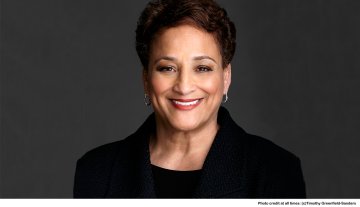AARP Hearing Center
2018 Cuts to Medicare Would Reduce Access to Health Care

WASHINGTON, DC — AARP CEO Jo Ann Jenkins sent a letter to Congressional leadership yesterday urging Congress to prevent $25 billion in automatic cuts to Medicare in 2018 that would result from the enactment of H.R. 1 and its $1.5 trillion deficit increase since it “would have an immediate and lasting impact, including fewer providers participating in Medicare and reduced access to care for Medicare beneficiaries.” Read the full text of the letter to Congressional Leadership below or for more information, visit AARP.
December 7, 2017
Dear Majority Leader McConnell, Minority Leader Schumer, Speaker Ryan, and Minority Leader Pelosi:
The Congressional Budget Office (CBO) recently provided an explanation of the impact H.R. 1 and its $1.5 trillion deficit increase will have on Medicare and other programs. The CBO estimated that because of statutory pay-as-you-go and the increase in the deficit, Medicare providers will be subject to an automatic $25 billion cut in fiscal year 2018, and additional cuts in subsequent fiscal years. According to CBO, the automatic cuts, or sequester, would begin as soon as January, 2018.
In a statement responding to Senator Collins’s inquiry on statutory pay-as-you-go and the risk of Medicare cuts, Leader McConnell and Speaker Ryan provided the following assurance: “Congress has readily available methods to waive this law, which has never been enforced since its enactment. There is no reason to believe that Congress would not act again to prevent a sequester, and we will work to ensure these spending cuts are prevented.” It is of paramount interest to our members, and other older Americans, that you act to prevent these spending cuts as soon as possible.
The sudden cut to Medicare provider funding in 2018 would have an immediate and lasting impact, including fewer providers participating in Medicare and reduced access to care for Medicare beneficiaries. Health care providers may choose to stop accepting Medicare patients at a time when the Medicare population is growing by 10,000 new beneficiaries each day. Cutting reimbursement in 2018, and possibly each year thereafter, would discourage health care providers from treating this growing population. We need to protect and strengthen the Medicare program and ensure there is a health care workforce able and willing to take on new patients. Furthermore, Medicare Advantage plans and Part D prescription drug plans may charge higher premiums or cost-sharing in future years to make up for the cuts now. These cuts also come at a critical time in the program when providers are adopting the new payment systems according to MACRA (P.L. 114-10) which overwhelmingly passed Congress in 2015. An across-the-board cut to provider reimbursement will leave health care providers fewer resources to invest in their practices, and make them less inclined to take on risk in new alternative payment models. The sudden payment cut will stifle the transition toward payment based on value, having implications for future Medicare cost growth. In any event, Medicare beneficiaries will pay the price for these sudden and significant cuts.
Our members and other older Americans are counting on you to preserve their access to Medicare services, including their doctors and hospitals. We urge you to act swiftly to prevent automatic cuts to Medicare. If you have any questions or need additional information, please feel free to contact me or contact Joyce Rogers, Senior Vice President of Government Affairs.
Sincerely,
Jo Ann C. Jenkins
Chief Executive Officer































































